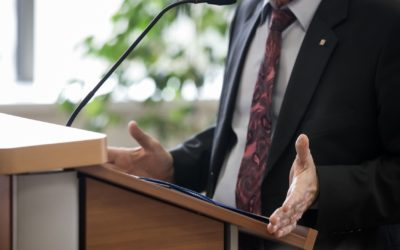#08-19 © Copyright 2009, all rights reserved worldwide. Gambling and the Law® is a registered trademark of Professor I. Nelson Rose, www.GamblingAndTheLaw.com.
Here’s a quote that should scare anyone involved with any form of legal gaming.
The federal Department of Justice (“DOJ”) got Google, Microsoft and Yahoo to agree to pay $31.5 million in fines to settle claims that they had promoted illegal gambling by running ads on the Internet. The DOJ announced that the fines were “for corporate conduct the government found in violation of the Federal Wire Wager Act, federal wagering excise tax laws, and various states’ statutes and municipal laws prohibiting gambling.”
The DOJ has subtly, but greatly, expanded its war of intimidation against Internet gambling. It has openly declared that it has the right to file criminal charges against anyone who violates any state or municipal law.
Of course, every state, city and county has laws against gambling. Nevada, for example, actively prosecutes illegal bookies and anyone else who operates commercial gambling without the necessary licenses.
And every state and municipality has laws against advertising illegal gambling, and often, even legal gambling.
A Georgia law, for example, makes it a crime to “knowingly print, publish, or advertise any lottery or other scheme for commercial gambling.” An Atlantic City casino that allows residents of Georgia to register online for a poker tournament might be violating this statute.
In a case that it later criticized, but did not expressly overrule, the U.S. Supreme Court ruled that Puerto Rico could prohibit casino advertising to its residents.
The Supreme Court also declared that it was constitutional for Congress to limit television and radio state lottery commercial broadcasts to states with state lotteries. That is still the law today: A Las Vegas T.V. station might lose its license if it airs an ad for the California State Lottery.
However, in the Greater New Orleans Broadcasting case, the Court ruled that it did indeed violate the First Amendment for Congress to prohibit a Louisiana-licensed casino from advertising on Louisiana T.V. and radio stations. The main problem was that the prohibition was irrational, since identical, but tribally-owned, casinos could broadcast their commercials.
As a nice twist, one of the lawyers for the American Gaming Association in the Greater New Orleans Broadcasting, arguing for the right of casinos to advertise, was my former classmate, John Roberts, now Chief Justice of the United States.
Ironically, it was the DOJ that expanded the decision, by announcing that it would no longer go after any casino broadcaster under federal law, even in states without licensed casinos.
But the DOJ never said it would not enforce state prohibitions on gambling ads. And the Supreme Court has never said those state statutes are unconstitutional.
The good news is that there is so much legal gambling in the country now, that it would be difficult to defend a state law that prohibits the advertising of legal gaming from another state. And the Internet, like television and radio waves, cannot be kept out.
It is possible that DOJ is once again merely beating its chest, and not intending to go after any more online advertisers. And it’s not even clear if local laws do apply to the Internet.
Still, if I were in charge of a licensed casino, I would have my lawyers look again at my web advertising, with an eye on avoiding “various states’ statutes and municipal laws prohibiting gambling.”
END
© Copyright 2009. Professor I. Nelson Rose is recognized as one of the world’s leading experts on gambling law. His latest books, Internet Gaming Law (2nd edition just published), Gaming Law: Cases and Materials, and Blackjack and the Law are available through his website, www.GamblingAndTheLaw.com.





0 Comments